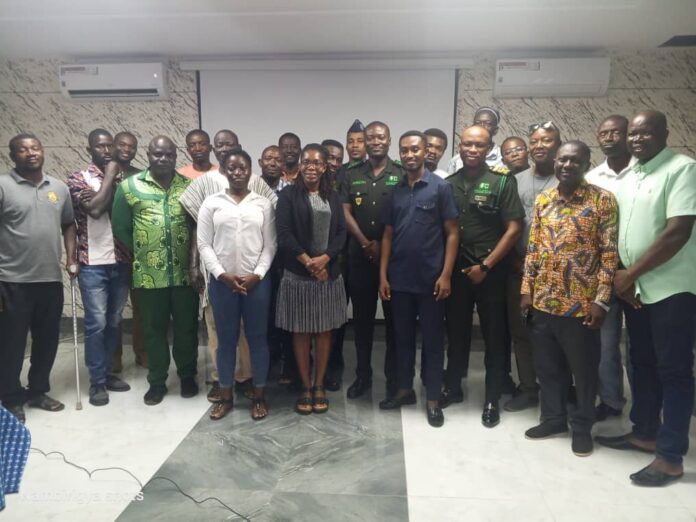Organization for Indigenous Initiatives and Sustainability (ORGIIS) Ghana has engaged various actors in the forestry chain in a bid to create awareness about the continuous attack on Forest Reserves in the Upper East and West Regions.
The district stakeholders workshop, organized with funding from the US Forest Service and in partnership with AROCHA Ghana, the Resources Foundation, and the Community Partners for Development Ghana (COMPAD -GH), is part of the implementation of a project dubbed Transboundary Monitoring of timber trafficking in Ghana.
Illegal logging and trade have been identified as a threat to the forest and ecosystem. The act is often done without regard to national laws and conventions.
It has been estimated that about 30% of global timber harvested is illegal leading to nearly 152 billion dollars being lost with 17 billion dollars lost in the African continent.
The illegal trade further threatens special tree species.
To contribute to effectively addressing drivers of illegal logging and timber trafficking along the supply chain by implementing a robust third-party monitoring framework led by CSOs in Ghana; in partnership with communities and Ghana’s VPA third-party monitor, the project has three key objectives.
One is to enhance CSO partners’ capacity to confidently identify timber species and process timber identification as well as understand the relevant regulations governing timber logging, processing, and trade in Ghana.
Another is to develop an inclusive data collection tool and monitoring system to be adopted for CSO joint monitoring activities with communities, Forestry Commission, and CEPS and increase awareness on timber trafficking with evidence gathered from the monitoring program.
Providing an update, Alexander Kubabom, an Official of ORGIIS Ghana noted that the monitoring has led them to engage various actors, hold radio engagements, and create awareness through the airing of jingles on the radio.
He tells Dreamz News that the major challenge with the monitoring has been the difficulty with collecting data at night.
Mr. Kubabom urged community members to endeavor to report illegal activities in Forest reserves to the security agencies, the Forestry Commission, and the organization itself.
“This is about presenting a progress review of our projects. The activities we have been doing are all about engagement. We have also been able to collect data but have observed that most of the trucks come in the night, we are not able to collect data from them.
To tackle this, I think the best way is for the security agencies to collaborate well with us. I hope that community members can always report to the Forestry Commission or us and they can be able to tackle this issue,” he said.
Speaking at the engagement, JacquelineMbawine of AROCHA Ghana expressed delight at the partnership, adding increased degradation calls for intensified efforts to protect the environment since the illegal activities negatively hamper livelihoods




